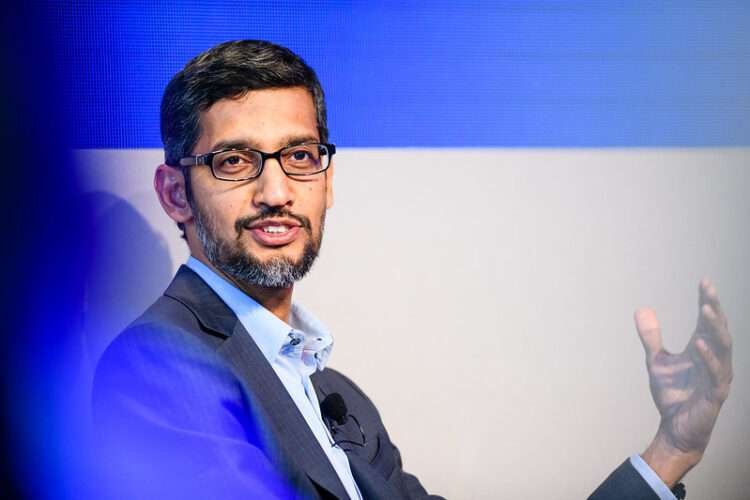The article covers the top seven highlights of Sundar Pichai’s interview, including his thoughts on India’s potential as a model for digital innovation, the importance of responsible regulation, and Google’s commitment to India through the India Digitization Fund.
In October 2020, the Competition Commission of India (CCI) issued two orders imposing penalties on Google for alleged abuse of its dominant position in the Android mobile device ecosystem and the Play Store policies. The first penalty was for Rs. 1,337.76 crore and the second was for Rs. 936.44 crore the CCI also issued a cease-and-desist order and directed Google to modify its conduct within a specific timeline.
After two orders imposing penalties on Google, Sundar Pichai, CEO of Alphabet and Google, visited India. During his visit, Madurai born-Pichai, 50, who has been at the helm of the internet giant for seven years met with Indian President Droupadi Murmu, Prime Minister Narendra Modi, IT Minister Ashwini Vaishnaw, and External Affairs Minister S Jaishankar.
In an interview with The Economic Times, Alphabet and Google Chief Sundar Pichai shared his thoughts on the country’s digital economy, the importance of responsible regulation, and Google’s commitment to India through the India Digitization Fund.
The article discusses Sundar Pichai’s views on India’s digital economy, responsible regulation, and Google’s commitment to India through the India Digitization Fund.
1. “Digital Innovation in India: A Shining Example”
In this quote, Sundar Pichai expresses his belief that India has the potential to be a model for digital innovation through the use of the Unified Payments Interface (UPI), the Aadhaar system, and the India stack. He states: “India will stand to benefit a lot. I think India will be a successful exporter in this digital economy as well.”
2. “The Importance of Responsible Regulation”
Pichai highlights the importance of “responsible regulation” in preserving user privacy and security in the digital realm. He states: “having responsible regulation which preserves some of the core elements is going to be critical… I think the scale and the role that technology plays in society, governments rightfully, including in India — particularly given the scale of India — are ensuring that they are thinking about citizen’s rights, particularly around privacy, security, data, etc.”
3. “Google Pay Goes Global with UPI Stack”
Pichai discusses how Google has brought the UPI stack, developed in India, to other countries through the creation of Google Pay. He states: “Google built Google Pay in India based on the UPI stack. And now we are bringing that to other countries around the world.”
4. “Concerns Over Recent Competition Watchdog Rulings in India”
Pichai expresses concern over recent competition watchdog rulings in India that imposed heavy fines on Google, stating that they could “set back user privacy and security.” He says: “I was definitely concerned by some aspects of the rulings… they can really set back user privacy and security.”
5. “The Role of a Free Mobile Operating System in Driving the Digital Revolution”
Pichai emphasizes the crucial role that a free mobile operating system like Android has played in driving the digital revolution in India. He states: “a free mobile operating system like Android has powered the digital revolution in countries like India and that it’s an important area to “get right”.”
6. “Google’s Commitment to India”
Pichai emphasizes Google’s commitment to India, both through the company’s long history in the country and the $10 billion India Digitization Fund. He says: “It’s important to me that we are a responsible local company in the context of helping India through its Digital India vision… We are sharpening our focus through a moment like this, but I think these are natural cycles, which the tech industry has gone through before. So, I think, it’s just a matter of time until we all work through this,” he said.
7. “The Focus of the India Digitization Fund”
Pichai discusses the focus of the India Digitization Fund, including improving 5G connectivity and investing in startups, particularly those led by women, with a focus on sectors such as agriculture and healthcare. He states: “We made large investments, with (Reliance) Jio, with (Bharti) Airtel and a few others… Part of the work we did with Jio was developing the JioPhone, and we’re doing that with other partners as well, but our motivation is to make sure we’re bringing affordable access to as many people as possible… We want to make sure we are using the IDF to contribute there with a focus on even sectors like agriculture, healthcare, etc.”
Declaimer: Reprinting or republishing this article in web media or other formats is not permitted by India CSR.
(CopyRight@India CSR)







